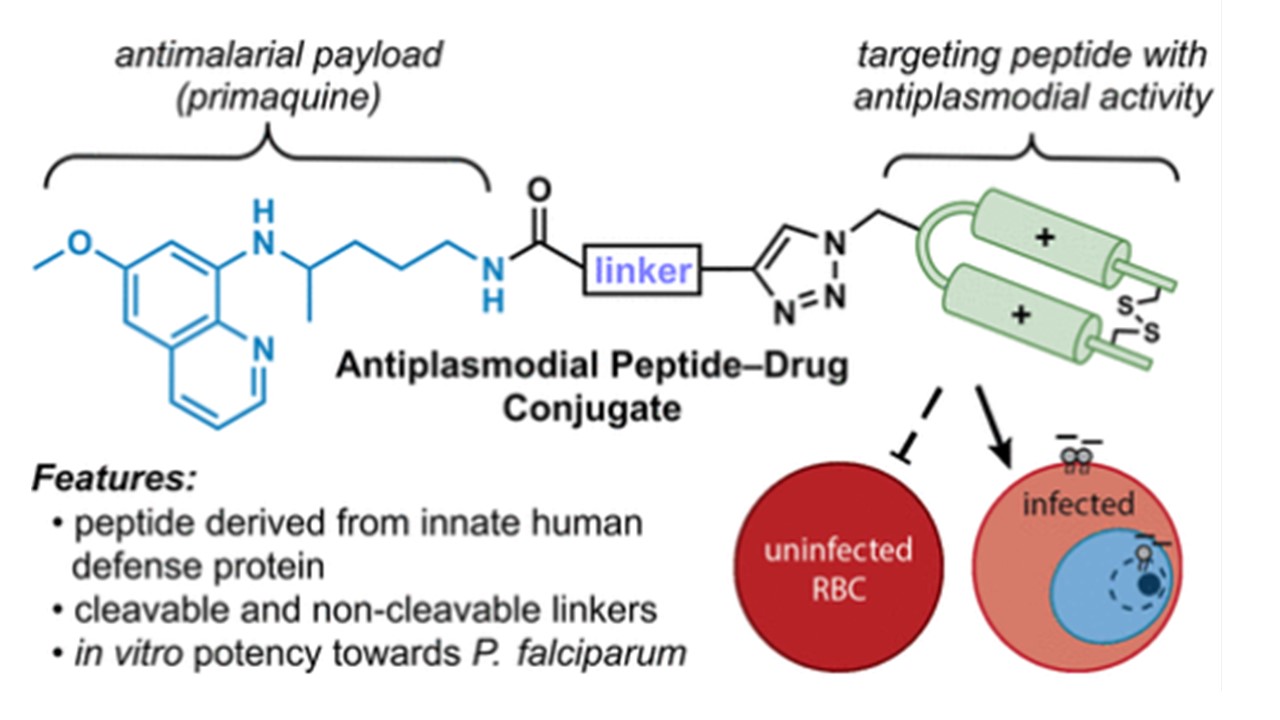Malaria continues to impose a global health burden. Drug-resistant parasites have emerged to each introduced small-molecule therapy, highlighting the need for novel treatment approaches for the future eradication of malaria. Herein, targeted drug delivery with peptide–drug conjugates (PDCs) was investigated as an alternative antimalarial therapy, inspired by the success of emerging antibody–drug conjugates utilized in cancer treatment. A synthetic peptide derived from an innate human defense molecule was conjugated to the antimalarial drug primaquine (PQ) to produce PDCs with low micromolar potency toward Plasmodium falciparum in vitro. A suite of PDCs with different design features was developed to identify optimal conjugation site and investigate linker length, hydrophilicity, and cleavability. Conjugation within a flexible spacer region of the peptide, with a cleavable linker to liberate the PQ cargo, was important to retain activity of the peptide and drug.
Palombi IR, Lawrence N, White AM, Gare CL, Craik DJ, McMorran BJ, Malins LR. Development of Antiplasmodial Peptide-Drug Conjugates Using a Human Protein-Derived Cell-Penetrating Peptide with Selectivity for Infected Cells. Bioconjug Chem. 2023 34(6):1105-1113.
